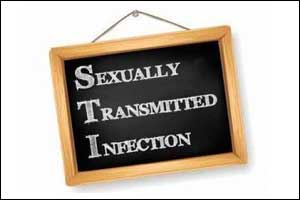- Home
- Editorial
- News
- Practice Guidelines
- Anesthesiology Guidelines
- Cancer Guidelines
- Cardiac Sciences Guidelines
- Critical Care Guidelines
- Dentistry Guidelines
- Dermatology Guidelines
- Diabetes and Endo Guidelines
- Diagnostics Guidelines
- ENT Guidelines
- Featured Practice Guidelines
- Gastroenterology Guidelines
- Geriatrics Guidelines
- Medicine Guidelines
- Nephrology Guidelines
- Neurosciences Guidelines
- Obs and Gynae Guidelines
- Ophthalmology Guidelines
- Orthopaedics Guidelines
- Paediatrics Guidelines
- Psychiatry Guidelines
- Pulmonology Guidelines
- Radiology Guidelines
- Surgery Guidelines
- Urology Guidelines
Doxycycline single dose for STIs after unsafe sex

Increased rates of sexually transmitted infections (STIs) have been reported among men who have sex with men.
Prof Jean-Michel Molina and associates conducted an open-label randomised study to assess whether post-exposure prophylaxis (PEP) with doxycycline could reduce the incidence of STIs and found that Use of doxycycline after condomless sex lowers the risk for some sexually transmitted infections (STIs) among high-risk men who have sex with men (MSM).The study has been published in Lancet Infectious Diseases.
The researchers randomized 232 high-risk MSM in France to receive post-exposure prophylaxis (PEP) with doxycycline or no PEP. For post-exposure prophylaxis PEP, Participants were randomly assigned (1:1) at a central site to take a single oral dose of 200 mg doxycycline PEP within 24 h after condomless oral or anal sex, not to exceed six pills weekly or no prophylaxis. The primary endpoint was the occurrence of a first STI (gonorrhoea, chlamydia, or syphilis) during the 10-month follow-up. The cumulative probability of occurrence of the primary endpoint was estimated in each group with the Kaplan-Meier method and compared with the log-rank test. All participants were taking tenofovir/emtricitabine as pre-exposure prophylaxis against HIV as part of the main study protocol,
During roughly 9 months' follow-up, the primary outcome — first occurrence of syphilis, chlamydia, or gonorrhea — was significantly lower with PEP (9-month probability, 22% vs. 42%). When examined by STI type, PEP significantly lowered the incidence of chlamydia and syphilis, but not gonorrhea.
Rates of serious adverse events were similar in the two study groups. Gastrointestinal adverse events were reported in 62 (53%) participants in the PEP group and 47 (41%) in the no-PEP group (p=0·05).
The researchers concluded that Doxycycline PEP reduced the occurrence of a first episode of bacterial STI in high-risk men who have sex with men.
For more details click on the link: DOI: http://dx.doi.org/10.1016/S1473-3099(17)30725-9

Disclaimer: This site is primarily intended for healthcare professionals. Any content/information on this website does not replace the advice of medical and/or health professionals and should not be construed as medical/diagnostic advice/endorsement or prescription. Use of this site is subject to our terms of use, privacy policy, advertisement policy. © 2020 Minerva Medical Treatment Pvt Ltd